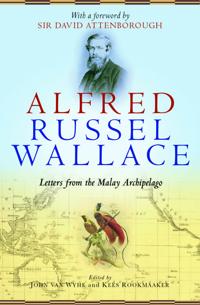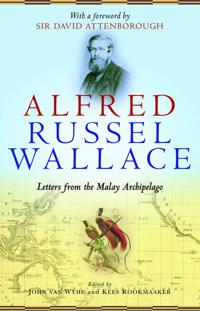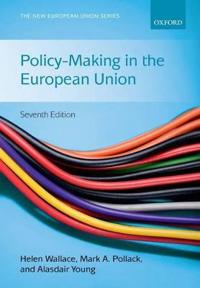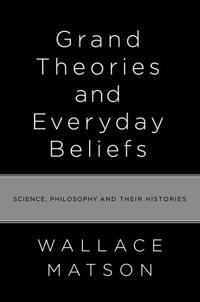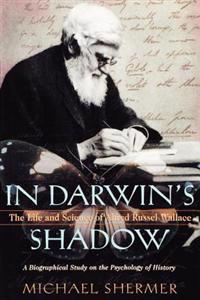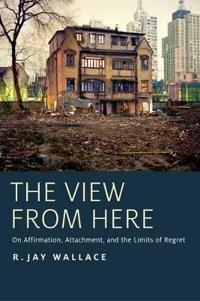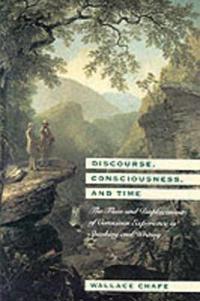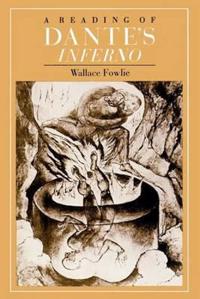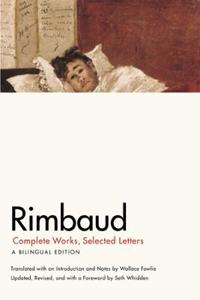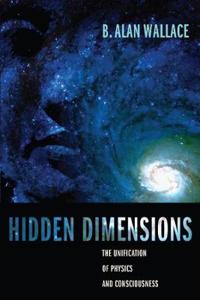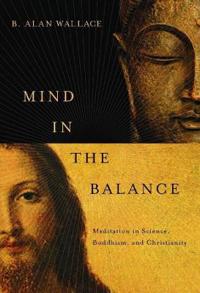Alfred Russel Wallace (Inbunden)
ISBN: 9780199683994 - UTGIVEN: 2013-10This volume brings together the letters of the great Victorian naturalist Alfred Russel Wallace (1823-1913) during his famous travels of 1854-62 in the Malay Archipelago (now Singapore, Malaysia, and Indonesia), which led him to come independently to the same conclusion as Charles Darwin: that evol[...]
Alfred Russel Wallace: Letters from the Malay Archipelago (häftad)
ISBN: 9780199684007 - UTGIVEN: 2015-11This volume brings together the letters of the great Victorian naturalist Alfred Russel Wallace (1823-1913) during his famous travels of 1854-62 in the Malay Archipelago (now Singapore, Malaysia, and Indonesia). it was these travels which led him to come independently to the same conclusion as Charl[...]
Policy-making in the European Union (Pocket)
avHelen (EDT) Wallace, Mark A. (EDT) Pollack, Alasdair R. (EDT) Young
ISBN: 9780199689675 - UTGIVEN: 2015-02Constantly evolving, and with far-reaching implications, European Union policy-making is of central importance to the politics of the European Union. From defining the processes, institutions and modes through which policy-making operates, the text moves on to situate individual policies within thes[...]
The Sjogren's Book (Inbunden)
avDaniel J. Wallace, Steven E. Carsons, Elaine Alexander
ISBN: 9780199737222 - UTGIVEN: 2011-10Afflicting one in seventy Americans, Sjogren's syndrome is an autoimmune disease that commonly causes dryness of the eyes, mouth, and nose, and that can lead to complications including profound fatigue, depression, and lymphoma. While there is no cure for Sjogren's, much can be done to alleviate th[...]
Investor-state Arbitration (Pocket)
avChristopher Dugan, Jr. Don Wallace, Noah Rubins, Borzu Sabahi
ISBN: 9780199795727 - UTGIVEN: 2012-03-08Grand Theories and Everyday Beliefs (Inbunden)
avWallace I. Matson
ISBN: 9780199812691 - UTGIVEN: 2012-01After a Darwinian-type account of what beliefs are and how they arose in animals acting to cope with their environments--"low beliefs," virtually all of which are true--Wallace Matson here shows how the invention of language led to imagination and thence to beliefs formed in other ways ("high belie[...]
In Darwin's Shadow: The Life and Science of Alfred Russel Wallace: A Biographical Study on the Psychology of History (häftad)
ISBN: 9780199856534 - UTGIVEN: 2011-11Virtually unknown today, Alfred Russel Wallace was the co-discoverer of natural selection with Charles Darwin and an eminent scientist who stood out among his Victorian peers as a man of formidable mind and equally outsized personality. Now Michael Shermer rescues Wallace from the shadow of Darwin i[...]
The Lupus Book (Inbunden)
avWallace, Daniel J., M.D.
ISBN: 9780199929405 - UTGIVEN: 2012-11-27The latest clinical trials and emerging therapies are reviewed in this informative guide to this disease of the immune system, along with specific topics addressing prevention, exercise, and diet, enhanced with a glossary of terms, appendix of related resource materials, and more.[...]
The View from Here (Inbunden)
avR.Jay Wallace
ISBN: 9780199941353 - UTGIVEN: 2013-06Must we always later regret actions that were wrong for us to perform at the time? Can there ever be good reason to affirm things in the past that we know were unfortunate? In this original work of moral philosophy, R. Jay Wallace shows that the standpoint from which we look back on our lives is sha[...]
George Wallace (Häftad)
avStephen Lesher
ISBN: 9780201407983 - UTGIVEN: 1994-12Alabama Governor George Wallace captured the national spotlight in fiery opposition to Civil Rights. But biographer Stephan Lesher suggests Wallace's more lasting significance is that of working class spokesman against the intrusion of "big" government. "The first serious study of the whole of Mr. W[...]
Texas (Pocket)
avRupert N. Richardson, Adrian Anderson, Cary D. Wintz, Ernest Wallace
ISBN: 9780205661688 - UTGIVEN: 2009-07-31This is a comprehensive yet accessible survey of Texas history-from early times to the present. Written in a narrative style, this book offers a balanced presentation of all time periods and topics of Texas history. From the beginning sections on geography and prehistoric people, to the concluding d[...]
Discourse, Consciousness and Time (Häftad)
avWallace L. Chafe
ISBN: 9780226100548 - UTGIVEN: 199408In this text, the author demonstrates how the study of language and consciousness together can provide an unexpectedly broad understanding of the way the mind works. Relying on close analyses of conversational speech, as well as written fiction and non-fiction, he investigates both the flow of ideas[...]
A Reading of Dante's "Inferno" (Häftad)
avWallace Fowlie
ISBN: 9780226258881 - UTGIVEN: 198105This work is a guide to the reading of Dante's great poem, intended for the use of students and laymen, particularly those who are approaching the "Inferno "for the first time. While carefully pointing out the uniqueness, tone, and color of each of Dante's thirty-four cantos, Fowlie never loses sigh[...]
Rimbaud (Pocket)
avArthur Rimbaud, Wallace Fowlie, Seth Adam Whidden
ISBN: 9780226719771 - UTGIVEN: 200511The enfant terrible of French letters, Jean-Nicholas-Arthur Rimbaud (1854-91) was a defiant and precocious youth who wrote some of the most remarkable prose and poetry of the nineteenth century, all before leaving the world of verse by the age of twenty-one. More than a century after his death, the [...]
A Companion to David Foster Wallace Studies (Inbunden)
avStuart Reid
ISBN: 9780230338111 - UTGIVEN: 2013-03Criticism of the work of David Foster Wallace has tended to be atomistic, focusing on a single aspect of individual works. A Companion to the Work of David Foster Wallace is designed as a professional study of all of Wallace's creative work. With essays written by both top scholars in the field and [...]
The Long European Reformation (Pocket)
avPeter G. Wallace
ISBN: 9780230574830 - UTGIVEN: 2012-08-01Peter G. Wallace interweaves the Reformation into the transformations of political institutions, socio-economic structures, gender relations, and cultural values in Europe. The revised second edition now incorporates the latest research, as well as a new chapter on the Reformation and Islam, expande[...]
Consuming Subjects: British Women and Consumer Culture in the Eighteenth Century (Övrig)
avElizabeth Kowaleski-Wallace
ISBN: 9780231105798 - UTGIVEN: 1996-11-25Consuming Subjects is an insightful exploration of the origin of the modern idea of women as shoppers. Kowaleski-Wallace considers the origins of current ideas about women and consumerism to call into question the "natural" link between women and the commodities they buy. While previous scholars ha[...]
Heretic in Darwin's Court, The: The Life of Alfred Russel Wallace (Inbunden)
avRoss A. Slotten
ISBN: 9780231130103 - UTGIVEN: 2004-06-02Heretic in Darwin's Court, The: The Life of Alfred Russel Wallace (Pocket)
avRoss A. Slotten
ISBN: 9780231130110 - UTGIVEN: 2006-03-07British Slave Trade and Public Memory, The (Inbunden)
avElizabeth Kowalesi Wallace
ISBN: 9780231137140 - UTGIVEN: 2005-12-12Contemplative Science: Where Buddhism and Neuroscience Converge (Övrig)
avB. Alan Wallace
ISBN: 9780231138352 - UTGIVEN: 2009-02-25Science has long treated religion as a set of personal beliefs that have little to do with a rational understanding of the mind and the universe. However, B. Alan Wallace, a respected Buddhist scholar, proposes that the contemplative methodologies of Buddhism and of Western science are capable of be[...]
Hidden Dimensions: The Unification of Physics and Consciousness (Övrig)
avB. Alan Wallace
ISBN: 9780231141505 - UTGIVEN: 2007-08-06Bridging the gap between the world of science and the realm of the spiritual, B. Alan Wallace introduces a natural theory of human consciousness that has its roots in contemporary physics and Buddhism. Wallace's "special theory of ontological relativity" suggests that mental phenomena are condition[...]
Hidden Dimensions (Häftad)
avB. Alan Wallace
ISBN: 9780231141512 - UTGIVEN: 2009-12Bridging the gap between the world of science and the realm of the spiritual, B. Alan Wallace introduces a natural theory of human consciousness that has its roots in contemporary physics and Buddhism. Wallace's "special theory of ontological relativity" suggests that mental phenomena are condition[...]
Mind in the Balance (Häftad)
avB. Alan Wallace
ISBN: 9780231147316 - UTGIVEN: 2014-09By establishing a dialogue in which the meditative practices of Buddhism and Christianity speak to the theories of modern philosophy and science, B. Alan Wallace reveals the theoretical similarities underlying these disparate disciplines and their unified approach to making sense of the objective wo[...]
Fate, Time, and Language: An Essay on Free Will (Övrig)
avDavid Foster Wallace
ISBN: 9780231151566 - UTGIVEN: 2010-11-04In 1962, the philosopher Richard Taylor used six commonly accepted presuppositions to imply that human beings have no control over the future. David Foster Wallace not only took issue with Taylor's method, which, according to him, scrambled the relations of logic, language, and the physical world, b[...]

